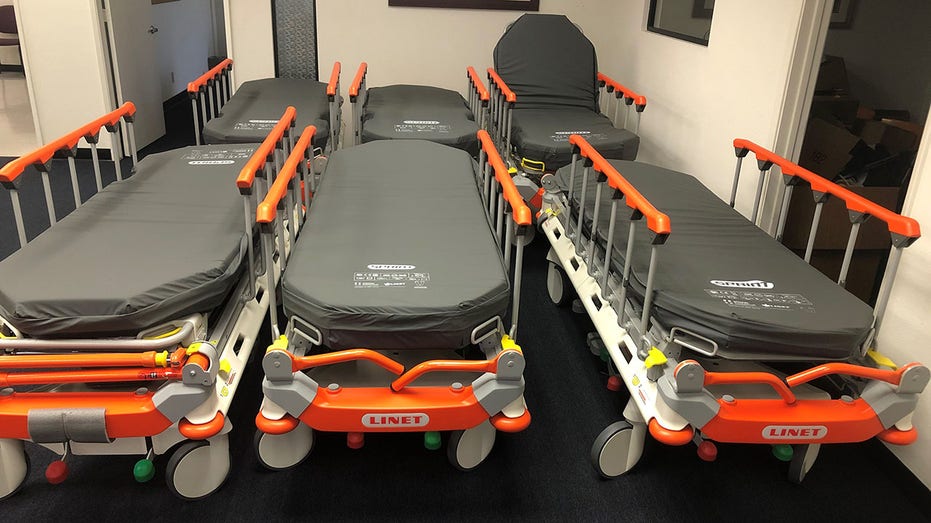Inflation, supply chain shortages making it harder, more expensive to obtain needed medical equipment
Exam tables are backlogged for four to five months
The ongoing supply chain disruptions have made it difficult for medical officials to get their hands on much-needed equipment from wheelchairs, crutches to canes and even exam tables.
The war in Ukraine is only exacerbating those supply chain issues – which persisted over the past two years – because Russia is a major producer of nickel, chrome and steel, Cindy Juhas, chief strategy officer of CME Corp. told FOX Business.
As a result, it's taking "two to three times longer to get things," she said. And when they come in, the cost for these products have surged due in part because of an increase in freight and raw material costs.
CLICK HERE TO READ MORE ON FOX BUSINESS
CME is the largest equipment-focused national medical distributor in the U.S., offering more than 2 million products from more than 2,000 manufacturers.

Stretchers assembled by CME. (CME Corp. )
"So far, in 2022, we're already seeing annual price increases that are up to quadruple or even five times higher than usual," Juhas said. The company reviewed 339 pricing contracts from a total of 167 top medical vendors.
Juhas said the manufacturer for one of CME's most popular wheelchairs added a 20% surcharge to cover the cost of raw materials and freight for the product in the last four months alone.
The costs for crutches have also gone up about 20%, although they have been hard to even get, she said.
Meanwhile, exam tables, have gone up between 20 to 30% and are also backlogged about four to five months, according to Juhas.
To underscore this issue, the American Hospital Association reported that between, the fall of 2020 and early 2022, the cost for energy, resins, cotton and most metals "surged in excess of 30%."
"These all are critical elements in the manufacturing of medical supplies and devices used every day in hospitals," the AHA said.
As a result, hospitals "turned to local suppliers and non-traditional suppliers, often paying significantly higher rates than they did prior to the pandemic."
GET FOX BUSINESS ON THE GO BY CLICKING HERE
Some healthcare centers around the country even resorted to asking for donations for equipment.
Joey Kamerath, senior medical director for rehabilitation services at Intermountain Healthcare, said the department's supply chain has run "completely dry."
To help, Intermountain alongside University of Utah Health, Steward Health and the Utah Hospital Association created a program called LeanOnUtah in order to collect metal crutches, walkers, canes, and non-motorized wheelchairs.

CME obtains truckloads and truckloads of medical equipment at its warehouses around the country. (CME)
Likewise, Charleston Area Medical Center in West Virginia announced last fall that the pandemic and supply disruptions created a "nationwide shortage of adult crutches" and its vendors have been unable to fill orders.
The medical center asked its Facebook followers "for anyone who may have crutches at home and not in use to consider donating them to patients," adding that these donations "will help those who may need crutches when they are discharged from the hospital after an injury or surgery."
Juhas projected that these issues – an increase in costs and shortage of supplies – will persist at least until the end of the year and maybe even into the first quarter of 2023.





















